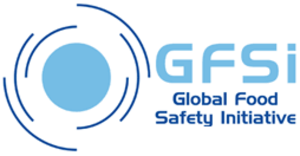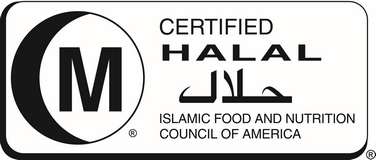Click HERE To Buy Colchicine Online ↓
 Colchicine in Cardiovascular Disease: Emerging Evidence
Colchicine in Cardiovascular Disease: Emerging Evidence
The Surprising Anti-inflammatory Role of Colchicine
For centuries, colchicine was celebrated primarily as a remedy for gout, largely due to its capacity to quell inflammation. Only in recent years have researchers begun to appreciate its broader anti-inflammatory capabilities in cardiovascular disease. By interfering with the NLRP3 inflammasome, a key driver of vascular inflammation, colchicine suppresses the production of pro-inflammatory cytokines.
This unique mechanism sets it apart from conventional cardiovascular treatments, most of which target cholesterol or blood pressure. Instead, colchicine acts at the cellular level to address persistent, low-grade inflammation—a critical factor in the development of atherosclerosis.
| Mechanism | Inflammatory Target | Main Benefit |
|---|---|---|
| NLRP3 Inhibition | Pro-inflammatory Cytokines | Reduced Vascular Inflammation |
Key Clinical Trials Shaping Colchicine's Reputation

For decades, colchicine was known primarily as a therapy for gout, but compelling new research has shifted its narrative toward cardiovascular health. Major clinical trials like the COLCOT (Colchicine Cardiovascular Outcomes Trial) have captured global attention, showing that low-dose colchicine can significantly reduce the risk of recurrent cardiovascular events following a heart attack. The LoDoCo (Low-Dose Colchicine) studies further expanded this evidence by demonstrating colchicine’s benefits in patients with stable coronary disease, sparking considerable interest among clinicians and researchers alike.
These pivotal trials have not only challenged traditional approaches to secondary prevention but have also highlighted the powerful anti-inflammatory effects of colchicine in reducing cardiovascular risk. The consistent results across diverse patient populations underscore its potential as an adjunctive therapy, paving the way for a new era in inflammation-targeted cardiovascular care.
Colchicine Versus Conventional Therapies: a Head-to-head
In the world of cardiovascular medicine, conventional therapies like statins, antiplatelet agents, and beta-blockers have long established their efficacy. Yet, the entry of colchicine into the arena signals a novel approach that targets inflammation, a key player in atherosclerotic disease. Emerging studies reveal colchicine’s remarkable ability to reduce the recurrence of cardiovascular events, sometimes achieving similar or even additive benefits when used alongside traditional medications.
Clinicians are now witnessing how colchicine reshapes the therapeutic landscape, especially for patients with residual inflammatory risk despite optimal standard treatment. Its oral, low-dose regimen further enhances practicality for long-term prevention. Nevertheless, ongoing research seeks to clarify ideal patient selection and combination strategies.
Safety Concerns and Side Effects in Focus

Despite colchicine’s promising cardiovascular benefits, safety remains a crucial consideration. Gastrointestinal disturbances, most notably diarrhea and nausea, are the most frequently reported side effects and can affect patient adherence. Rare but serious complications, such as myotoxicity and cytopenias, tend to occur predominantly in those with existing renal impairment or when colchicine interacts with other medications that affect its metabolism.
Clinicians must be vigilant about the narrow therapeutic window of colchicine and carefully monitor for potential drug-drug interactions, especially with common cardiovascular agents. Dose adjustments or avoidance are necessary in patients with compromised kidney or liver function. Awareness of these risks, balanced against the drug’s anti-inflammatory advantages, is essential for optimizing patient outcomes in contemporary cardiovascular practice.
Potential Impact on Atherosclerosis and Plaque Stabilization
Colchicine’s entry into the world of cardiology has drawn particular interest from researchers investigating its effects on arterial plaque. Chronic inflammation is now recognized as a driving force behind atherosclerosis progression, with unstable plaques increasing the risk of heart attacks and strokes. Surprisingly, colchicine’s age-old mechanism—suppressing microtubule formation and modulating inflammatory pathways—may also slow plaque development.
Importantly, studies suggest that low-dose colchicine can target leukocyte activity and dampen pro-inflammatory cytokine release within the arterial wall. This process potentially translates to greater stability of vulnerable plaques, mitigating acute coronary syndromes.
Patients receiving colchicine after myocardial infarction have shown lower inflammatory marker levels and reduced rates of recurrent events in several trials. As research evolves, the idea of “cooling” inflamed arteries without the trade-offs of aggressive immunosuppression is gaining momentum among clinicians.
| Mechanism | Effect on Atherosclerosis |
|---|---|
| Anti-inflammatory action | Lowers cytokine release in plaques |
| Leukocyte inhibition | Reduces plaque destabilization |
| Endothelial protection | Slows progression of arterial lesions |
Future Directions and Unanswered Questions in Cardiology
As colchicine gains momentum in cardiovascular research, several intriguing avenues remain unexplored. Questions linger regarding optimal dosing, long-term safety, and which patient subgroups may derive the greatest benefit from therapy. Additionally, determining the value of colchicine in primary prevention, beyond established secondary prevention settings, represents a critical area of future study. Ongoing and upcoming clinical trials promise to clarify its role, potentially transforming treatment strategies and opening doors to novel anti-inflammatory therapies in cardiology.





















